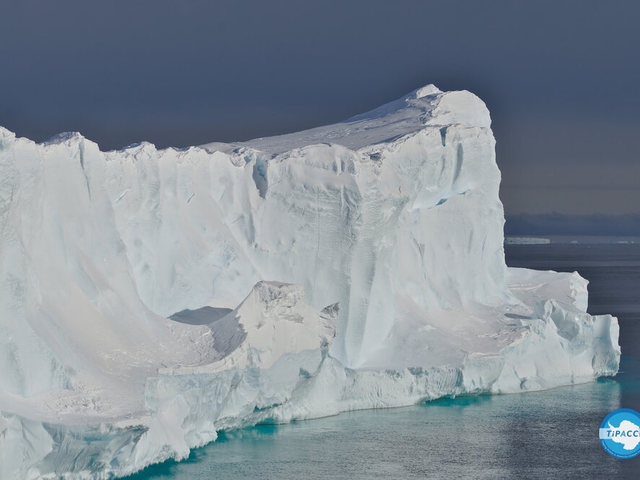West Antarctica's ice sheet remains stable, for now

Antarctica is known for its vast ice masses that are capable of raising global sea levels by several meters. A team of experts from European research institutes recently conducted the first systematic stability inspection of the ice sheet’s current state. Their analysis revealed that the ice sheet in West Antarctica is not yet experiencing irreversible, self-reinforcing retreat, but global warming so far could still trigger the gradual loss of ice over the next hundreds to thousands of years.
“With more and more ice being lost in Antarctica over the last years, concerns have been raised whether a tipping point has already been crossed and an irreversible, long-term collapse of the West Antarctic Ice Sheet has already been initiated,” explains Ronja Reese from the Potsdam Institute for Climate Impact Research (PIK) and the Northumbria University, Newcastle. “The results of our studies deliver two messages: First, while a number of glaciers in Antarctica are retreating at the moment, we find no indication of irreversible, self-reinforcing retreat yet, which is reassuring. However, our calculations also clearly indicate that an onset of an irreversible retreat of the ice sheet in West Antarctica is possible if the current state of the climate is sustained.”
The primary cause of ice loss in West Antarctica is the relatively warm ocean water that amplifies melting beneath the ice shelves. These ice shelves are the floating extensions of the grounded ice sheet. The melting of these ice shelves can enhance ice loss by speeding up the dropped sections of the ice sheet. Therefore, the Antarctic margin, with its grounding lines, which is the zone where the grounded and the floating ice are connected, is a crucial indicator of ice sheet health. An accelerated retreat of the grounding lines could indicate an imminent collapse of major marine regions of West Antarctica's ice sheet, particularly those parts of the ice sheet that are grounded below sea level.
Evolving over 10,000 years, triggered today: irreversible ice-loss and sea-level rise
Researchers used advanced ice sheet supercomputer models to conduct a comprehensive study on the irreversible retreat of marine sectors of the Antarctic ice sheet. They also ran simulations to predict how the ice sheet would evolve over the next 10,000 years under current conditions. The results of these hypothetical experiments suggest that certain marine regions of West Antarctica's ice sheet could be irreversibly collapsing even without additional warming beyond what we have already experienced today. The authors found that collapse occurs in their simulations at the earliest in 300 to 500 years from now, under current climate forcing, and a full collapse could take centuries to millennia.
“The thing with sea-level rise from Antarctica is not that changes would happen overnight as an immediate threat to coastal communities. The process of melting would happen over hundreds or thousands of years. However, the cause could be human actions today, as they have the power to trigger and commit a future of 10,000 years to several meters of global sea-level rise. And stronger warming in the future would even speed up this process,” Julius Garbe from PIK stresses. Changes in ice discharge from Antarctica remain one of the greatest uncertainties in future projections of global sea-level rise. “The Antarctic ice is our ultimate heritage of the past, millions of years old and often coined ‘eternal’ ice. But our work shows: that while current ice loss may still be reversible, a destabilization of marine sectors of the ice sheet could initiate a long-term ice loss that is slow but certain. Climate change today could already be enough to tip the scales, that is concerning. Yet, with West Antarctica not destabilized yet there is still a chance to mitigate at least some of the risk by ambitious climate action,” Ricarda Winkelmann from PIK concludes.
Despite the stability inspection for West Antarctica showing that the marine ice sheet is not destabilized yet, the evidence suggests that it is on a path to tipping. This is a worrying sign for the future of our planet, as the destabilization of the ice sheet could have a devastating effect on the environment and the global climate. We must take action now to prevent this from happening, or else we risk facing the consequences of our inaction in the future.

 How to resolve AdBlock issue?
How to resolve AdBlock issue?